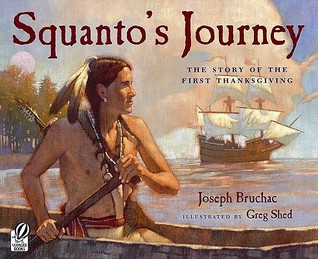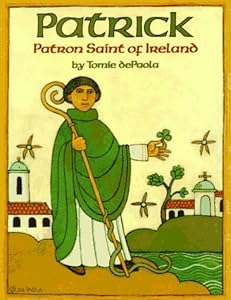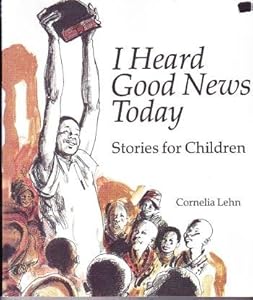So you're planning to start home educating your child this fall? Welcome to the world of the homeschool parent! *high five* I don’t know what brought you here - maybe you’ve got a kindergartener who can read but can’t sit still and don’t want to subject her to a classroom of “be quiets” and “sit downs!” Or maybe you’re pulling out your 5th grader because he hates everything to do with learning and it breaks your heart. Maybe your child has learning requirements their school can’t - or won’t - accommodate. Maybe you’re just fed up with the toxic social situation your middle schooler is dealing with and feel her stress level (and yours) would reduce coming home to learn. In any case, you’ve taken the step into the unfamiliar and are wondering what comes next.
Get That Legal Stuff Taken Care of
You’ve probably already looked into this, but if your haven’t, you’ll want to soon. No one wants to be in that awkward situation of being afraid to go out with your kids during regular school hours for fear of random truancy reports! Look into your local homeschool regulations, and figure out what you need to comply. Local homeschool support groups or just a local homeschool friend can help you out enormously with this. If you don’t know anyone, go ahead and ask on a local homeschool Facebook page or Yahoo group. We’re generally a pretty friendly bunch that tries to help out newbies.
Do Your Research
Take a few weeks to explore the major approaches to home education. Websites abound, including forums, Facebook pages, curriculum vendors’ websites, Pinterest boards, and of course myriad blogs. Google terms like Classical, Charlotte Mason, Unschooling, Unit Studies, Waldorf, and Montessori along with “homeschooling” and you’ll find plenty of information to get you started. It can be overwhelming, its true, but if you can get an overview of styles most likely one or two will appeal to you and strike a chord - “THIS is what I want my kids education to look like!” And then you can go deep into whatever chose philosophy with books and curriculum vendors’ pages, as well as more specialized websites.
Start Out with a Plan, But Be Flexible
I started out homeschooling with an everything-in-the-box curriculum from Sonlight. It was great - literature based, all planned out, lots of fun. Having everything planned out but still flexible was exactly what I needed as a homeschool newb - I wasn’t even sure what all this should look like. Even though I went through a chunk of early childhood education classes in college, I wasn’t clear on how to schedule and manage our days. I look at Sonlight as my training wheels. I felt security knowing that it was a well planned out curriculum by people who knew what they were doing. Once I got a good sense of it, I began to branch out. In later years I took what I liked, what I didn’t like, and what I wanted to add, and began to put together my own program. But those first two years of using Sonlight really helped me to build confidence and find what worked for me and my kids. Another approach is to think in terms of subjects and put together a plan from there - find individual math, grammar, writing, spelling, handwriting, history, literature and science programs. I now use the book The Well Trained Mind heavily in my planning, and its really not much harder to plan than a box curriculum to plan. Whatever you use, consider your first year or so to be a learning period - it can take some time to find what works best.
Don’t Go Crazy Overboard
Maybe its just me, but when I go through homeschool resources I start to lose touch with reality a bit. Sure, I think - we can do Spanish....and Latin....and LEGO Robotics....and Rhetoric....and that amazing looking class on underwater pottery! Yes! YES! Then I remember the many times I have introduced an awesome new subject or activity only to have it fall with a thud because it was just one.more.thing.to.do. Start with your basics - Math, Language Arts, History/Social Studies, and Science are usually the core subjects. Art, Music, P.E., and various electives should be added in, but thoughtfully and realistically. Not every subject has to have a classroom-like lesson. Art for us usually consists of me introducing various art mediums (watercolor, pastels, clay, etc) and looking thoughtfully and discussing beautiful works of art. Fun, low-stress, and easy to fit into a laid back afternoon.
Start Looking For Your Tribe
Join local support groups (check for links of off state organizations, yahoo groups, facebook groups and meetup.com groups). Go to whatever meetings you can find - just to check it out. Check out local co-ops and social groups. As in anything, you won’t click with everyone. Some groups will rub you the wrong way, but hopefully you’ll find a few families that you and your kids click with. Maybe you'll find a group to play at the park with, a co-op, or even an experienced homeschooler that can field some questions and offer encouragement.
Reconsider Household Routines
Homeschooling really is a lifestyle. Your day will look pretty different from your neighbor whose kids leave at 8:30 am and come home at 3 pm. In some ways this is great - no rushing around in the morning packing lunches and signing permission slips, no nights of homework. But you will have your kids at home with you. All day. If you’re starting homeschooling from the beginning with your Kindergartener, or you already have young kids at home, this won’t be a big deal, but if you’re going from no kids (or just a few) at home to everyone suddenly, I can imagine it might be a shock to the system. Be open to adjusting housekeeping expectations and planning when your will be out of the house alone (when your spouse is home? or hiring an afternoon babysitter?). Just knowing that these will require adjustment can be comforting during the transition.
Consider Deschooling
Whatever educational approach resonates with you, if you are pulling a child out of regular school you might want to consider a period nondirected, discovery based learning . This is commonly called “deschooling,” and the idea is that it allows your child to calibrate themselves to the rhythm of learning out of an institution by allowing them the time to explore their own interests, no strings attached. We do this for at least 2 months out of the year (we call it summer break, hah!), but it seems to be particularly cathartic for older students who have developed negative associations with learning. You can read more about deschooling here.
Much luck in the coming school year! Sending your virtual hugs and cups of coffee (and maybe glasses of wine if that's more your style). :) It will be an exciting year!















